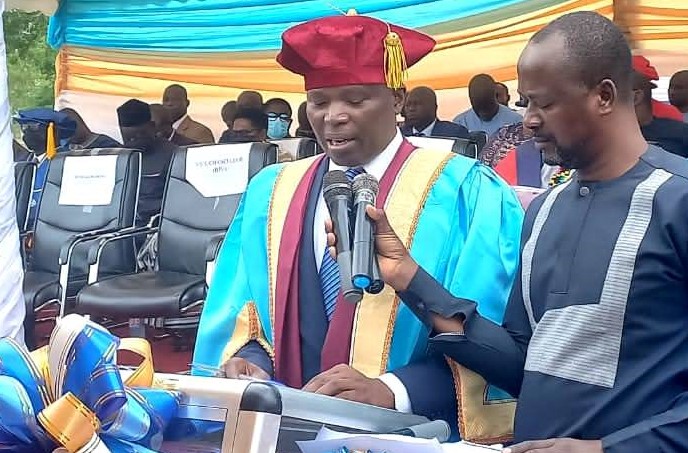The Vice-Chancellor of Bolgatanga Technical University Prof. Samuel Erasmus Alnaa says the implementation of the Free Senior High School policy has lowered the quality of education at the second cycle level.
“When things are free and the demand for that particular free thing is so high, quality, more often than not is compromised. That is what I see currently, that the quality is being compromised,” he stated on State of Our on Dreamz FM.
Despite the impressive final examination results recorded following the roll out of the policy, Prof. Alnaa said most of the Free SHS graduates, who have progressed to the tertiary, struggle to grasp basic concepts, compounding teaching and learning at that level.
“They come to the tertiary level, then they have difficulties in doing proper writing, concentrating.”
He stated that although the policy has made education at that level accessible to many particularly the poor, resulting in enrolment more than doubled, there has not been corresponding expansion in infrastructure and staffing in schools.
This has led to overcrowding and overburdening of staff in the various schools and ultimately, has lowered the quality of education at the pre-tertiary level, he added.
“we have overcrowding in the hostels or dormitories. We have overcrowding in the classroom. Teachers are overstretched because of double-track.
They are teaching all year round. If we don’t take time, these teachers may not be able to deliver. Not that they don’t know, but they are overwhelmed by overclocking.”
He added, “If we have quality in our education being compromised, then it means that we are also compromising our country. We are destroying our country”.
The Free SHS policy, implemented in 2017 in fulfilment of the New Patriotic Party and its then leader Nana Akufo-Addo’s promise ahead the 2016 elections, has been riddled with many challenges including infrastructure deficit and shortage of food.
The situation raised concerns among many development watchers as they criticized government for doing little to address the challenges.
Prof. Alnaa believes the challenges confronting the implementation of the policy is due to government’s failure to consult widely before rolling it out.
He wants urgent measures to be instituted to improve the quality of education at the pre-tertiary level, warning it could affect productivity if the current trend is not reversed.




